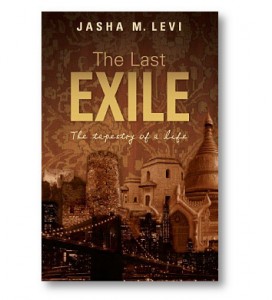 Today, we get a sneak peek of author Jasha M. Levi’s political memoir, The Last Exile:
Today, we get a sneak peek of author Jasha M. Levi’s political memoir, The Last Exile:
The road from Sarajevo in 1921 to New York in 1956 and up to the present covers a distance. It was a particularly winding and long one for the author, from the student protests against pro-Nazi government in pre-war Yugoslavia, WWII civilian confinement in Italy under Mussolini, fighting against German troops and Quislings in Dalmatia in 1944-45, battling Soviet attempts to dominate Yugoslavia, reporting from the world and the UN, and finally taking asylum in the US in despair over his country ever becoming a democratic one. In The Last Exile, Jasha Levi opens himself and the mosaic of his turbulent life and times to the public scrutiny, His readers should find his memories as compelling as his intimates always did.
The Last Exile is available on Amazon.com and other online bookstores.
III: A NEW LIFE
Sarajevo, But Not Home
A few weeks after Slava joined us in Dubrovnik we returned to Sarajevo. As we came into town, on its sidewalks again after being away for four wartime years, I kept looking for a familiar face. Where before I’d known everyone in the streets, by sight at least, now I came upon only one person I knew—Savo Besarović, class of 1939. He was a scion of a patrician Serbian family, most notably remembered for shooting a buddy with his mother’s Beretta, a mother-of-pearl job. After a perfunctory investigation and much publicity, the case had been settled out of court.
This was no longer my town.
All the people I knew were dispersed, killed mostly, my friends as well as enemies, butchering each other so long as Hitler was in power.
I searched for Miša Radojević, or Rado, my “blood brother.” He’d had no memory of a father, and I hadn’t cared much for mine, a negative taskmaster and reactionary. We were always in and out of each other’s kitchens, Miša and I, sampling our mothers’ food. He was to become a painter, I a poet. At fourteen, in the bohemian trans-Miljacka cafe downstairs from a bordello, we’d sealed our blood-brotherhood when we burned the tip of a needle, pierced our forefingers, and mixed droplets of our blood.
I couldn’t find him then, nor ever. Without Rado, this was not home.
[subscribe2]
